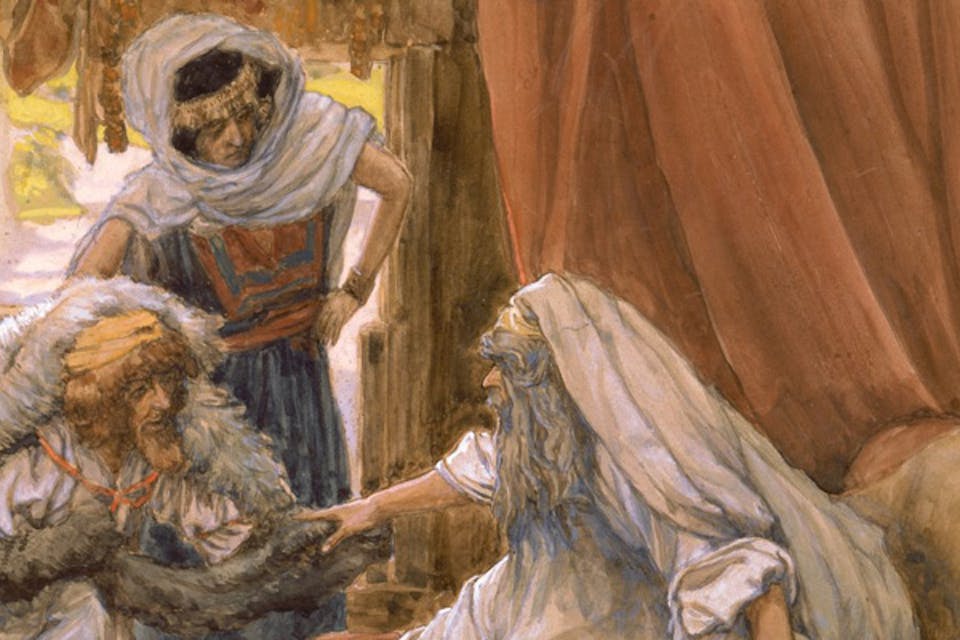
November 20, 2014
Jacob, the Innocent Con Artist
Was Jacob born to greatness, did he achieve it, or did he have it thrust upon him by his mother?
This week’s Torah portion of Toledot (Genesis 25:19 – 28:9) is about the costs and benefits of obedience, or of emulation if you will. Where Abraham’s story begins with God’s demand that he leave his father’s house and go wherever the Almighty wants him to go, this story is about three men, none of whom really wants to leave his father’s house, and one woman who sees to it that her sons do what God requires. The story is about staying, not going, and the price exacted by each.
But these are the annals of Isaac son of Abraham, Abraham fathered Isaac.
And Isaac was forty years old when he took Rebecca daughter of Betuel the Aramean of Pedan,
sister of Laban the Aramean, as his wife.
And Isaac entreated the Lord when he found his wife was barren
and the Lord assented to him and Rebecca his wife conceived.
And the children rattled about inside her and she said, Why am I like this?
And she went to inquire of the Lord and the Lord told her,
Two peoples are in your belly and two nations will part from your loins
and one nation will fortify the other
and the elder will make offerings to the younger.
A key question at this point is just what is meant by “the elder”? Many commentators have justified Rebecca’s subsequent actions as being intended to fulfil this prophecy by seeing to it that her firstborn son Esau will make offerings to his younger twin Jacob. Her actions do fulfil the prophecy, but in exactly the way she does not want. Yes, they allow Jacob to assume the role of firstborn, but they also drive him from his father Isaac’s house, only to return many years (and several Torah portions) later to make offerings to his “younger” brother Esau in recompense for having stolen the birthright and their father’s blessing. So what does this story mean?